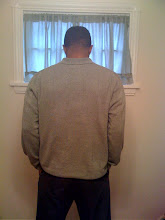You're ghetto/country if:
- You have a BBQ grill on the front porch
- You park your car on the lawn even if you have a driveway
- There's a living room couch or arm chair (or any "inside" furniture) on your front or back porch
- You name your child something very common yet change the spelling (ie. "Ami" for "Amy")
- You wear a XXL white t-shirt yet weigh only 120 lbs.
- You're paying at the register with food stamps yet all your kids have on Jordans...and your freshly done nails are visible while talking on the cell phone
- You live in the projects with a brand new Escalade out front
- You notice other people keep turning around while you're talking out in public (in other words you talk too loud)
- You say "Girl I know he didn't" a little too often
- You have more than one car in the driveway that doesn't work (and hasn't for years)
- In the summer time you tend to do hair on the front porch
- The kids toys stay in the front lawn
- Your nails stay done even in the midst of financial crises
- You use muliple 4 letter words in front of your toddler
- Smoking in the car with children while the windows are up
- You have 30 day tags on the back of the car and on the driver side you have a black garbage bag for a window
- If you have five kids by four different Daddies
- If you've ever said "My Baby's Daddy"
Now those are just my personal opinions below is a quiz a friend of mine sent awhile ago. If you still have doubts please take the below test:
How ghetto is you?
GET A PENCIL AND PAPER BEFORE YOU START
THIS JUST HOW GHETTO IS U??
1. You've ever used an album cover for a dustpan. (5 points)
2. If you've ever run a race barefoot in the middle of the street. (10points)
3. You had a candy lady in your neighborhood. (5 + 5 extra points if your house was the candy lady)
4. If you ever had to pick your own switch or belt. (3 points for each)
5. If you have ever had to walk to school or walked home from school. (2points)
6. If you have ever used dishwashing liquid for bubble bath. (5 points)
7. If you ever mixed Kool-Aid one glass at a time because you got tired of other people drinking up the Kool-Aid you just made. (5 points)
8. If you have ever played any of the following games: hide and go seek, freeze, tag, Momma may I? or red, light/green light. (2 points each)
9. If your neighborhood had an ice cream man. (2 points + 2 if he rang a bell)
10. If you refer to "Now and Later" candies as "Nighladers". (5 points)
11. If you've ever run from the police on foot. (5 points + 5 if you got away)
12. If you've ever had reusable bacon grease in a container on your stove. (5 points + 15 if you still do it)
13. The batteries in your remote control ever been held in by a piece of tape. (5 points)
14. If you have ever worn any of the following fragrances Brute, Hai Karate, Jean Nate, Old Spice, Chloe, English Leather, Stetson, Charlie, or Faberge. (1 point each)
15. You've ever used Tussy. (5 points)
16. You've never been to the dentist. (15 points)
17. If you have a friend or family member whose nickname is one word said twice: dee-dee, fee-fee, man-man,Kay-Kay, lee-lee, ree-ree, ray-ray, nay-nay, etc.(10 points)
18. You have ever paged yourself for any reason. (3 points)
19. You've ever worn house shoes outside of the house.(2 points)
20. You add "ED" or "T" to the end of words already in the past tense (for example, Tooked, Light-Skinneded, kilt, ruint, etc.) (5 points)
21. You use 'n'em to describe a certain group of people ( for example Craig'n'em or Momma>>'n'em). (5 points)
22. You've ever driven on a donut more than 2 weeks after your flat. (5points)
23. Your child drops his/her pacifier and you sanitize it by sucking it.(10 points)
24. You have ever slept in a chair to avoid messing up your hair. (10 points)
25. You've ever left a social gathering with a plate. (2 points)
26. You can't hold a glass because of the length of your nails. (5 points)
27. The gold teeth in your mouth spell words.(10 points)
28. You don't have your own place but your child has a leather coat and a pair of Jordan 's. (15 points)
29. You constantly hit *69 and ask, "Did you just call here?" (10 points)
30. You think Tupac is still alive. (20 points)
31. If you are going to have to use a calculator to add your points. (25points)
Now the totals...
0 - 50 points - I guess you were raised in the suburbs
51 - 75 points - A bonafide ex-hood rat
76 - 150 points - Spent a little time in the projects
150 points or more - Still there, huh?







